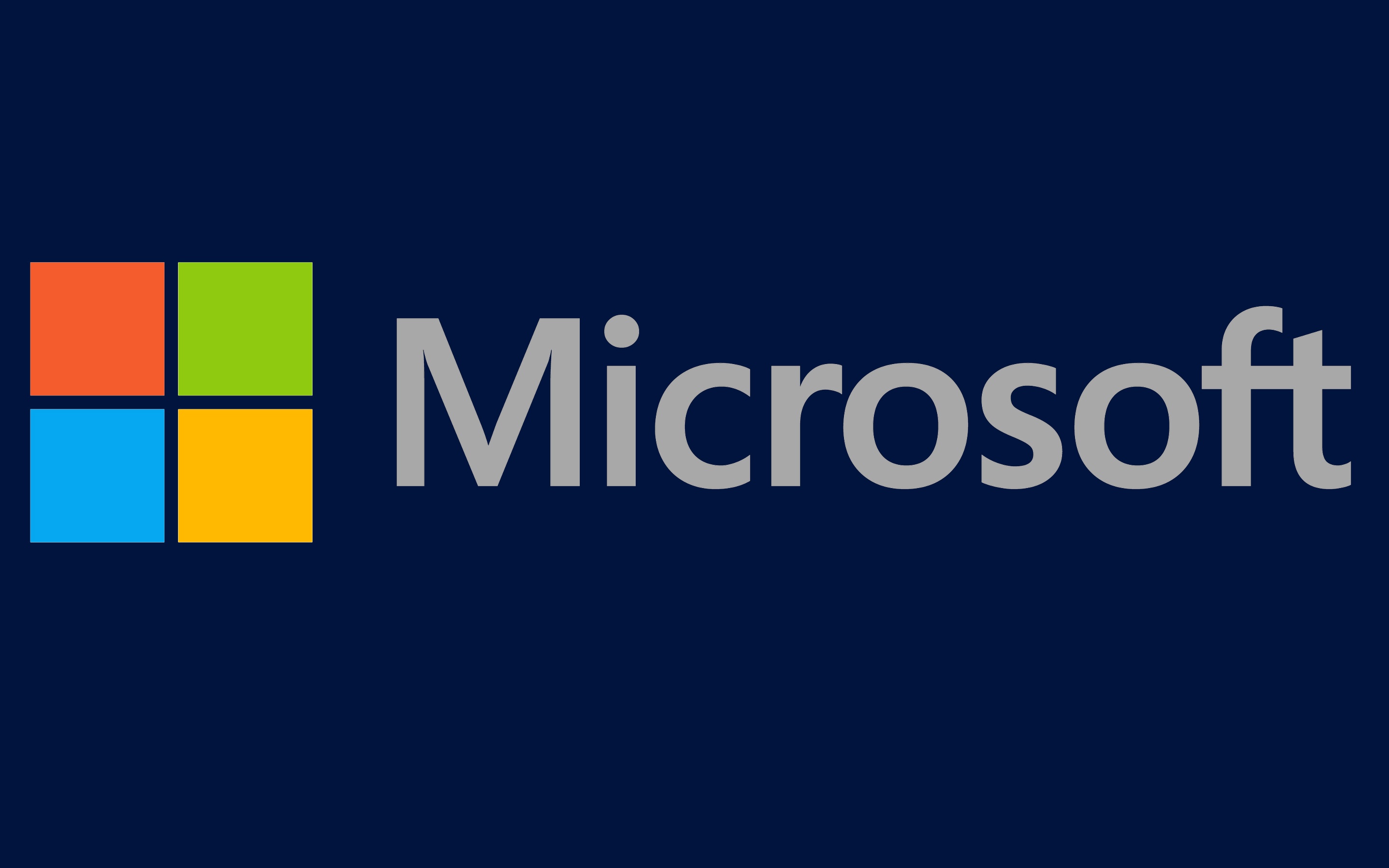Business
Microsoft announces new services, updates to help accelerate AI transformation
Published
2 years agoon

Microsoft has introduced around 100 new services and updates as part of its AI-forward strategy, including key developments within its productivity and security offerings.
The announcements were made at Microsoft Ignite 2023 – the company’s annual conference for developers and IT professionals.
As we reach the end of 2023, nearly every industry in Africa is undergoing a collective transformation, with estimates that AI could expand the economy as much as 50 percent of current GDP by 2030 if the continent could capture just 10 percent of the global AI market.
Forward-thinking organisations and enterprising startups alike are discovering entirely new ways of working and harnessing the power of AI to address some of society’s most daunting challenges—from improving access to quality legal services in South Africa to extending the reach of healthcare professionals in low-resourced communities in Nigeria.
READ ALSO: 10 AI terms everyone should know–Microsoft
Microsoft Ignite is a showcase of the advances being developed to help customers, partners and developers achieve the total value of Microsoft’s technology and reshape the way work is done.
There are strong signals of AI’s potential to transform work across the continent. As it stands, more than half of employees in Africa and the Middle East say they would change their minds about seeking out a new job if their current employer invested in new technology like automation. Eight months ago, Microsoft introduced Copilot for Microsoft 365 to reduce digital debt and increase productivity so people can focus on the work that is uniquely human. Already, the company’s research, from a combination of surveys and experiments, demonstrates significant productivity gains:
70 percent of Copilot users said they were more productive, and 68 percent said it improved the quality of their work; 68 percent say it helped jumpstart the creative process.
READ ALSO: Microsoft, OCP Africa partner to sustain, grow food security in Africa
Overall, users were 29 percent faster at specific tasks (searching, writing and summarising).
The company’s latest announcements are geared towards helping accelerate existing progress, enabling faster and more profound transformation across sectors. Key updates include:
Rethinking cloud infrastructure
Microsoft has led with groundbreaking advances like partnerships with OpenAI and the integration of ChatGPT capabilities into tools used to search, collaborate, work and learn. As we accelerate further into AI, Microsoft is rethinking cloud infrastructure to ensure optimisation across every layer of the hardware and software stack.
READ ALSO: Trend Micro teams up with INTERPOL to fight African Cybercrime Networks
At Ignite we are announcing new innovations across our datacentre fleet, including the latest AI optimised silicon from our industry partners and two new Microsoft-designed chips.
Microsoft Azure Maia, an AI Accelerator chip designed to run cloud-based training and inferencing for AI workloads such as OpenAI models, Bing, GitHub Copilot and ChatGPT.
Microsoft Azure Cobalt, a cloud-native chip based on Arm architecture optimised for performance, power efficiency and cost-effectiveness for general purpose workloads.
Additionally, we are announcing the general availability of Azure Boost, a system that makes storage and networking faster by moving those processes off the host servers onto purpose-built hardware and software.
Complementing our custom silicon, we are expanding partnerships with our silicon providers to provide infrastructure options for customers.
“We’ll be adding AMD MI300X accelerated virtual machines (VMs) to Azure. The ND MI300 VMs are designed to accelerate the processing of AI workloads for high range AI model training and generative inferencing, and will feature AMD’s latest GPU, the AMD Instinct MI300X.
The preview of the new NC H100 v5 Virtual Machine Series built for NVIDIA H100 Tensor Core GPUs, offering greater performance, reliability and efficiency for mid-range AI training and generative AI inferencing. We’re also announcing plans for the ND H200 v5 Virtual Machine Series, an AI-optimised VM featuring the upcoming NVIDIA H200 Tensor Core GPU.
“To go beyond individual productivity, we are extending Microsoft Copilot offerings across solutions to transform productivity and business processes for every role and function.
Top Copilot-related announcements include:
Microsoft Copilot for Microsoft 365: The new Microsoft Copilot Dashboard shows customers how Copilot is impacting their organisation. To empower teamwork, new features for Copilot in Outlook help users prep for meetings, and during meetings, new whiteboarding and note-taking experiences for Copilot in Microsoft Teams keep everyone on the same page.
READ ALSO: Microsoft addressing Africa’s connectivity issues to boost SMEs growth
Microsoft Copilot Studio: This is a new end-to-end conversational AI platform that allows organisations to build their own copilots from scratch or adapt out-of-the-box copilots with their own data, logic, and actions relevant to their business needs.
Bringing Copilot to everyone: Bing Chat and Bing Chat Enterprise will now simply become Copilot. With these changes, when signed in with a Microsoft Entra ID, customers using Copilot in Bing, Edge and Windows will receive the benefit of commercial data protection.
Unlocking more value for developers with Azure AI
We continue to expand choice and flexibility in generative AI models to offer developers the most comprehensive selection. With Model-as-a-Service, a new feature in the model catalog we announced at Build, pro developers will be able to easily integrate latest AI models such as Llama 2 from Meta and upcoming premium models from Mistral and Jais from G42 as API endpoints to their applications. They can also customise these models with their own data without needing to worry about setting up and managing the GPU infrastructure, helping eliminate the complexity of provisioning resources and managing hosting.
With the preview of Azure AI Studio, there is now a unified and trusted platform to help organisations more easily explore, build, test and deploy AI apps – all in one place. With Azure AI Studio, you can build your own copilots, train your own, or ground other foundational and open-source models with data that you bring.
And Vector Search, a feature of Azure AI Search, is now generally available, so organisations can generate highly accurate experiences for every user in their generative AI applications.
The new GPT-3.5 Turbo model with a 16K token prompt length will be generally available and GPT-4 Turbo will be in public preview in Azure OpenAI Service at the end of November 2023, GPT-4 Turbo will enable customers to extend prompt length and bring even more control and efficiency to their generative AI applications.
GPT-4 Turbo with Vision is coming soon to preview and DALLE·3 is now available in public preview in Azure Open AI Service, helping fuel the next generation of enterprise solutions along with GPT-4, so organisations can pursue advanced functionalities with images. And when used with our Azure AI Vision service, GPT-4 Turbo with Vision even understands video for generating text outputs, furthering human creativity.
Introducing new experiences in Windows to empower employees, IT and developers
To further our mission of making Windows the home for developers and the best place for AI development, we announced a host of new AI and productivity tools for developers, including Windows AI Studio.
Announcing NVIDIA AI foundry service
Aimed at helping enterprises and startups supercharge the development, tuning and deployment of their own custom AI models on Microsoft Azure, NVIDIA will announce their AI foundry service running on Azure. The NVIDIA AI foundry service pulls together three elements – a collection of NVIDIA AI Foundation models, NVIDIA NeMo framework and tools, and NVIDIA DGX Cloud AI supercomputing and services – that give enterprises an end-to-end solution for creating custom generative AI models. Businesses can then deploy their models with NVIDIA AI Enterprise software on Azure to power generative AI applications, including intelligent search, summarisation and content generation.
Strengthening defenses in the era of AI
Microsoft is combining the power of leading solutions in SIEM, XDR and generative AI for security into the first unified security operations platform to help defenders by simplifying the complexity of their environment. We are also adding new embedded experiences of Security Copilot across the Microsoft Security portfolio.
You may like
Trending

 Entertainment1 week ago
Entertainment1 week agoSinger Simi faces backlash after TikToker admits to false rape allegation

 Entertainment4 days ago
Entertainment4 days agoSimi addresses resurfaced 2012 tweets amid online backlash

 Comments and Issues1 week ago
Comments and Issues1 week agoNigeria’s Declining Oil Output and Soaring Foreign Portfolio Investment Inflow

 Comments and Issues1 week ago
Comments and Issues1 week agoEx-prince Andrew’s arrest, lessons for Nigeria

 Business1 week ago
Business1 week agoPENGASSAN warns Tinubu’s executive order on oil revenues could jeopardise 4,000 jobs

 Comments and Issues1 week ago
Comments and Issues1 week agoThe Seyi Tinubu’s jellof rice, loaves of bread

 Health6 days ago
Health6 days agoSCFN, LUTH introduce bone marrow transplants as curative treatment for sickle cell

 Football6 days ago
Football6 days agoHarry Kane nets brace as Bayern edge Frankfurt 3–2 to go nine points clear





